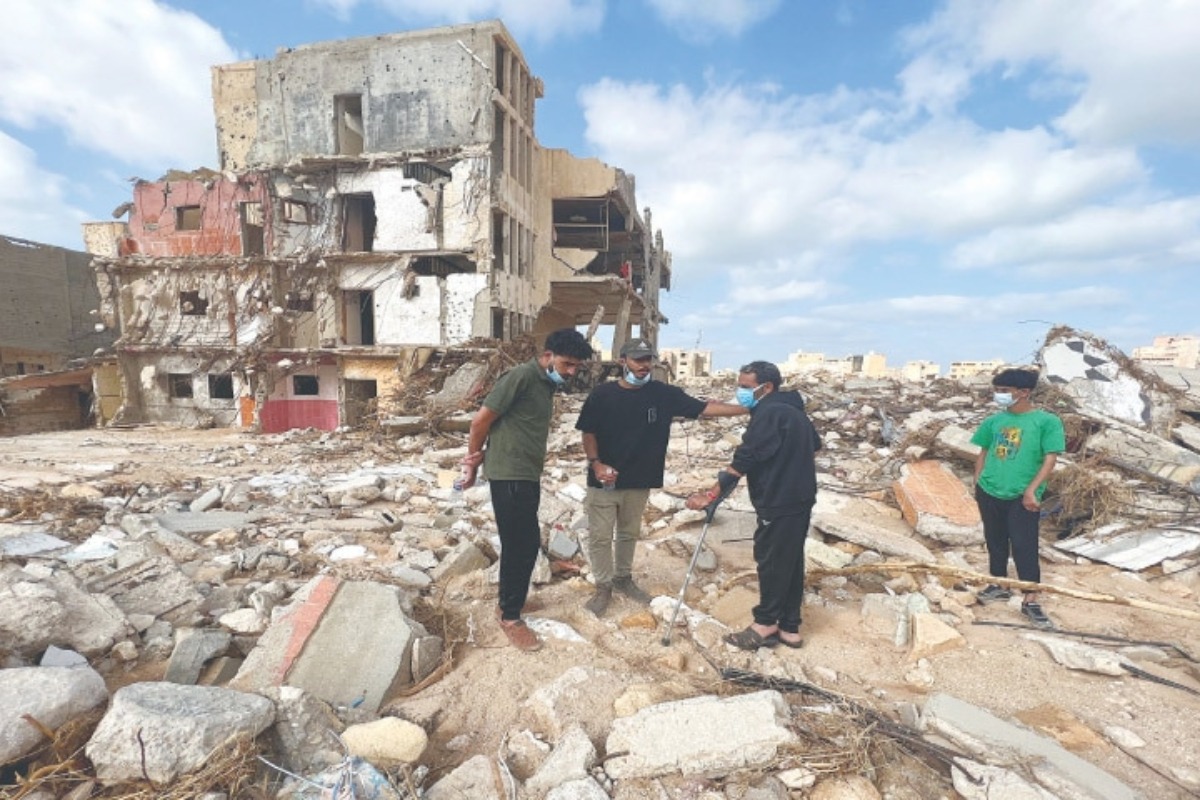Pakistani Climbers Achieve Success on Manaslu
Naila Kiani hopes to reach the summit on September 21st. Sirbaz Khan...

Floods and Protests in Libya: Impact and Causes
Telephone and internet connections to the flood-hit city of Derna in Libya were cut off on Tuesday, following protests against local authorities blamed for the devastating floods. The flash flood, which occurred on September 10, breached aging river dams upstream, causing extensive damage and loss of life.
On Monday, hundreds of protesters gathered at the city’s grand mosque, expressing their frustration with local and regional authorities for neglecting dam maintenance and failing to provide early flood warnings. Some demonstrators even set fire to the house of the unpopular mayor, demanding justice.
The following day, Derna experienced a disruption in phone and internet services, with the national telecom company LPTIC attributing it to a “rupture in the optical fiber” link. The company also suggested that this outage, affecting other areas in eastern Libya, might have been the result of deliberate sabotage and pledged to repair it promptly.
Despite ongoing rescue efforts, the official death toll from the flood stands at approximately 3,300 people, with many thousands still missing. The flood was triggered by heavy rains associated with Mediterranean Storm Daniel.
New research reveals that climate change significantly increased the likelihood and severity of the torrential rains that led to the deadly flooding in Libya. Scientists from the World Weather Attribution group found that the magnitude of the deluge seen in northeastern Libya, typically a once-in-several-century event, was influenced by human-caused global warming. It resulted in up to 50 percent more rainfall during the event.
The study also identified the role of other factors, including conflicts and inadequate dam maintenance, in exacerbating the humanitarian disaster caused by the extreme weather event. Climate change, combined with these factors, turned what might have been a rare natural event into a catastrophic situation.
To evaluate the impact of climate change on extreme events, the WWA scientists compared current climate conditions, with approximately 1.2 degrees Celsius of warming since pre-industrial times, to historical data. However, the study faced limitations due to a lack of observational weather station data, especially in Libya, and the localized nature of the events in question.
Catch all the Business News, Breaking News Event and Latest News Updates on The BOL News
Download The BOL News App to get the Daily News Update & Live News.